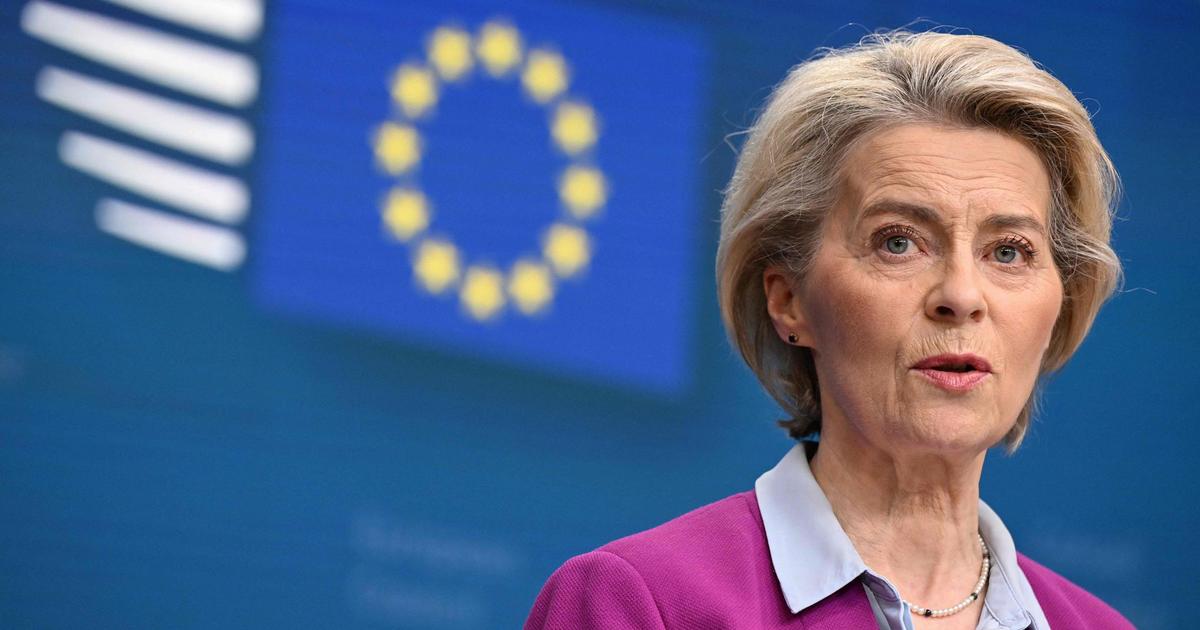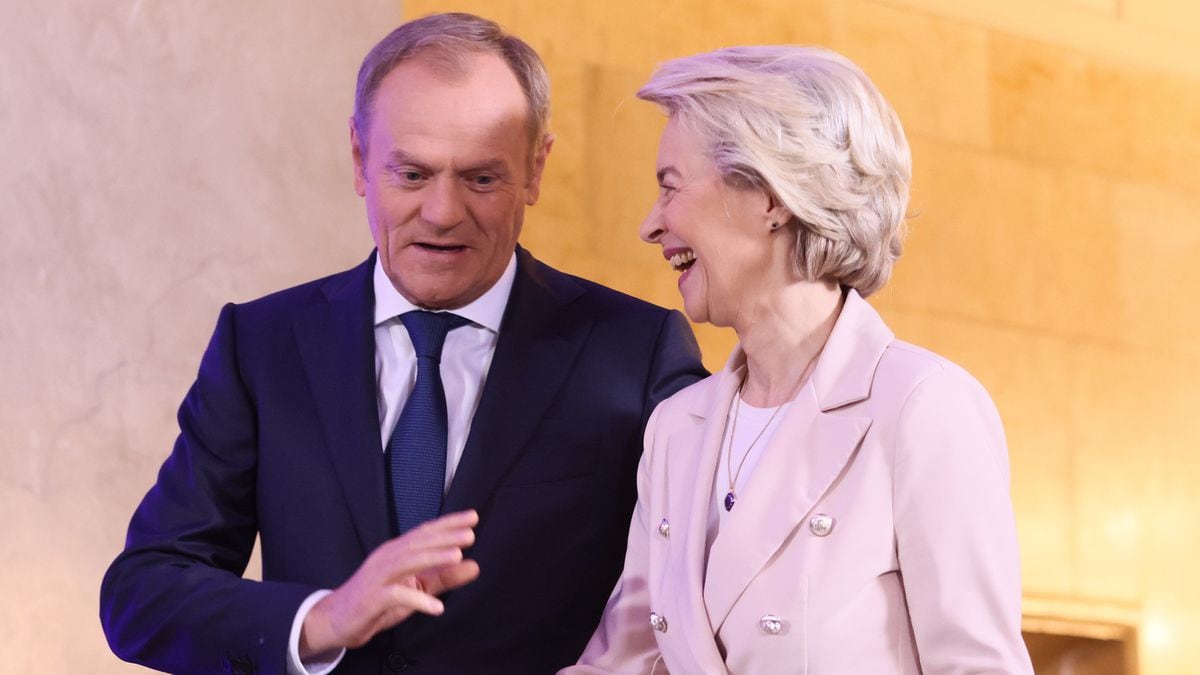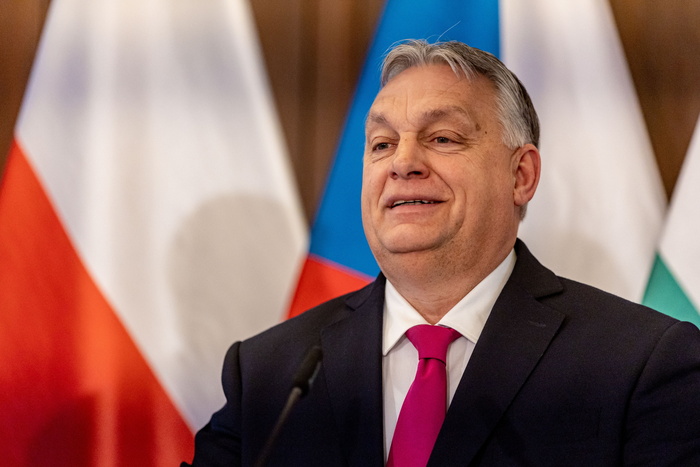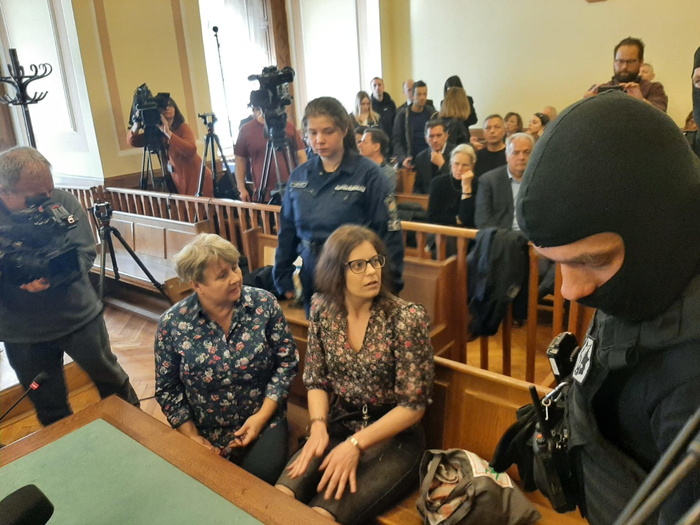Winter is settling in Hungary with unpleasant airs.
With inflation of 21.1%, the ultra-conservative government of Viktor Orbán arrives touched this Wednesday, when the European Commission is expected to formally announce its position on the destination of 13,300 million euros of European funds for Budapest.
The outlook is as cloudy as the overcast sky in the capital these days.
This was recognized this Tuesday by the Hungarian Executive.
Brussels demanded 17 anti-corruption measures and in recent days has shown signs of skepticism about compliance.
Withdrawing European funds is the harshest economic punishment possible for a Member State for violating the rules of the rule of law and the EU is testing it with Hungary for the first time.
Civil society also sees the initiatives launched in recent months as insufficient,
Orbán has spent more than a decade challenging Brussels on essential issues for the EU, such as the rights of migrants and the LGTBI collective, freedom of expression and association.
In the end, he has been the threat to cut off European financing, due to the risk that corruption and patronage pose to Union funds, which has put the Fidesz government on the ropes.
In its communication to the European Council, the Commission points out that "the violations of the principles of the rule of law detected are systematic and widespread".
Furthermore, he sees “systematic inability, failure or unwillingness” in the Hungarian authorities to tackle corruption.
"Declaring that it is a systematic problem is questioning the legitimacy of the Hungarian government," says Zoltán Kóvacs, international spokesman for the Orbán Executive.
In his plant-filled office next to the iconic Parliament building, which has seen intense legislative activity this autumn, he insists: “There are 17 measures that were identified as issues that we have agreed to work on to change, amend and satisfy the Commission. .
Any statement beyond that is a political opinion."
institutionalized corruption
Civil society organizations such as Transparency International (TI) characterize corruption as an essential part of the Orbán regime.
“It functions as a redistribution channel through which the government redistributes resources from its loyal cronies and businessmen to establish a new elite, through public procurement and undermining the rule of law,” sums up József Péter Martin, director of TI in Hungary. over coffee in Buda, on the western bank of the Danube.
And he emphasizes that "in a captive State", as he describes the Hungarian, "corruption is not a failure, but a characteristic of the system".
The Commission launches with Hungary the conditionality mechanism.
In September he proposed freezing 65% of three cohesion fund programs, 7,500 million euros.
To unblock them, Budapest has committed to implementing a comprehensive package of anti-corruption measures.
This Tuesday, Tibor Navracsics, the minister in charge of the negotiations, acknowledged that it is very likely that the Commission will recommend to the Council to suspend the funds, but assured that Budapest will comply and will get them next year.
"I'm an optimistic person," he replied about whether there could be a last-minute deal, according to Reuters.
In parallel, 5,800 million euros of the recovery fund for the pandemic for Hungary are at stake, the only one that remains pending.
If it does not get the green light before the end of the year, the country loses 70%, but in this case Navracsics awaits better news and is confident that the matter will reach Ecofin on December 12.
According to information that has emerged in recent days, Brussels demands additional reforms to improve judicial independence and control of funds and will verify compliance with the agreements, staggered in milestones, before any disbursement.
More than a third of the anti-corruption measures undertaken by Budapest have to do with public procurement, in a country where around 50% of tenders have only one bidder, five times above the European average, and the companies connected with Fidesz members have up to 130% more chances of winning them, according to the Commission.
Other initiatives seek to ensure that corruption cases are not lost in a highly hierarchical and politicized Prosecutor's Office, and that its decisions can be appealed (although experts believe that the crucial thing is that Hungary join the European Prosecutor's Office).
One of the most talked about initiatives is the creation of an Integrity Authority, a body that will supervise other government agencies and that the political opposition considers a farce.
Its powers are limited, but it will be able to suspend tenders if it sees irregularities, for example.
"Each legal tool counts to the extent that its powers are used," says a legal expert specializing in corruption who prefers to remain anonymous and who sees opportunities in this body.
A working group will cooperate with it, in which, after extensive discussions, civil society organizations such as TI will participate.
There is a consensus among these entities and critics of the Government that the package put in place is insufficient to resolve corruption, but there are two approaches.
The majority, as Martin explains, is "the one from the Big Bang", who maintains that "corruption is so systemic and violations of the rule of law so profound, that no single measure can fix them."
The other current, in which it is included, believes that external pressure from the Commission "in the long term, can open opportunities and can harm the system and the perpetrators", on the condition that the EU does not focus only on the reforms legislative, but to monitor the execution.
European complicity
The IT director welcomes the change in attitude in Brussels, which critics blame for having looked the other way since Fidesz came to power.
In an office from the headquarters of the Central European University (CEU) that resists in Budapest, expelled by Orbán, Renata Uitz, professor and co-director of the Democracy Institute, jokes about how “fascinating” it is that “in a decade with multiple attempts at Commission so little has happened to stop this government”.
"That Brussels has not used the tools at its disposal before has not only worsened the situation, but also makes it complicit," she adds with a touch of disappointment.
On the conservative side of the political spectrum they glared at the Commission.
"That's not fair.
We pay what corresponds to us and we are entitled to this money”, says István Kiss, director of the
think tank
Danube Institute, close to the Government.
In a meeting room of a palace-house on castle hill, Kiss argues that "it's not about corruption or the rule of law, but about an ideological issue."
Critical NGOs and intellectuals expect a strong hand from the Commission.
Mihaly Fazekas, also a CEU professor and scientific director of the Government Transparency Institute, argues that "until all concerns are addressed, there should be no disbursements."
The analyst Rudolf Berkes, from the
think tank
Political Capital, warns, however, of the consequences of a total suspension of European funds, which in the last decade have accounted for between 3 and 4% of GDP, starting with a drop in Forint, the Hungarian currency, which has been declining for some time.
“We are not Greece in 2010, but the costs of borrowing are already very high at current interest rates.
The economy would slow down and we could see a recession in the next couple of years,” he warns.
With core inflation in October at 22.3% and the current account deficit at high levels, Budapest needs the money.
After the announcement scheduled for this Wednesday, the decisions on the punishment of Budapest will fall on the governments of the Union.
"The Commission is smart enough not to trust it, but the Member States are even more suspicious," recalls Berkes, who points out that "the level of frustration" has increased in recent months.
Hungary, the Kremlin's biggest ally in the EU, has been a difficult partner in negotiations related to the invasion of Ukraine.
Follow all the international information on
and
, or in
our weekly newsletter
.
Subscribe to continue reading
Read without limits
Keep reading
I'm already a subscriber















